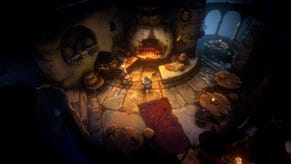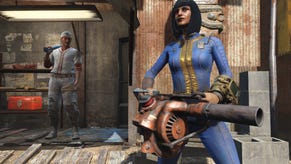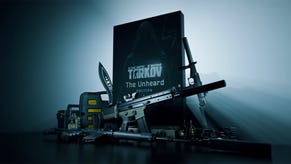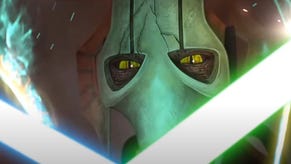Soul Reaver wasn't originally developed as a sequel to Blood Omen: Legacy of Kain, says Hennig
Soul Reaver wasn't originally developed as a sequel to Blood Omen: Legacy of Kain, Amy Hennig has said. If you haven't played any of the games in the series - for shame - know there are potential spoilers below.
Speaking in a retrospective on the PS Blog, Hennig - the game's writer and director - said Soul Reaver was originally conceptualized as a new IP titled Shifter, and loosely inspired by Paradise Lost.
"The protagonist was essentially a fallen angel of death, a reaper of souls hunted by his former brethren, and now driven to expose and destroy the false god they all served," she said. "The Shifter concept was the genesis of the game that would become Soul Reaver; the core ideas were all there. The hero was an undead creature, able to shift between the spectral and material realms, and glide on the tattered remains of his wing-like coattails.
"We conceived the spirit realm as a twisted, expressionistic version of the physical world. The hero was bent on revenge after being betrayed and cast down by his creator – like Raziel, he was a dark savior figure, chosen to restore balance to a blighted, dystopian world.
"When we were asked to adapt this concept into a sequel to Blood Omen, our challenge was to take all these ideas and merge them creatively into the Legacy of Kain mythos."
Hennig said despite the change in direction, the finished product was "pretty close" to original concept of Shifter.
"We had to cut content, but the core concept of the game remained unchanged," she said. "To hit the August ’99 release date, we had to cut the last few levels of the game, and end on a cliffhanger that set up Soul Reaver 2.
"Originally, Raziel was going to hunt down and destroy all of his former brothers as well as Kain – and then, using his newly-acquired abilities, he would’ve activated the long-dormant pipes of the Silenced Cathedral to wipe out the remaining vampires of Nosgoth with a sonic blast. Only then would he realize that he’d been the Elder God’s pawn all along, that the purging of the vampires had devastating consequences, and that the only way to set things right would be to use Moebius’ time-streaming device to go back in time and alter history (in the sequel).
"So the story would have arrived at a similar place, just by a different route. In the end, as much as I hated its bluntness, Soul Reaver’s “To Be Continued” ending probably turned out to be a blessing in disguise, because I think it opened up more interesting story options for the sequels."
You can read the entire interview with Hennig through the link.










